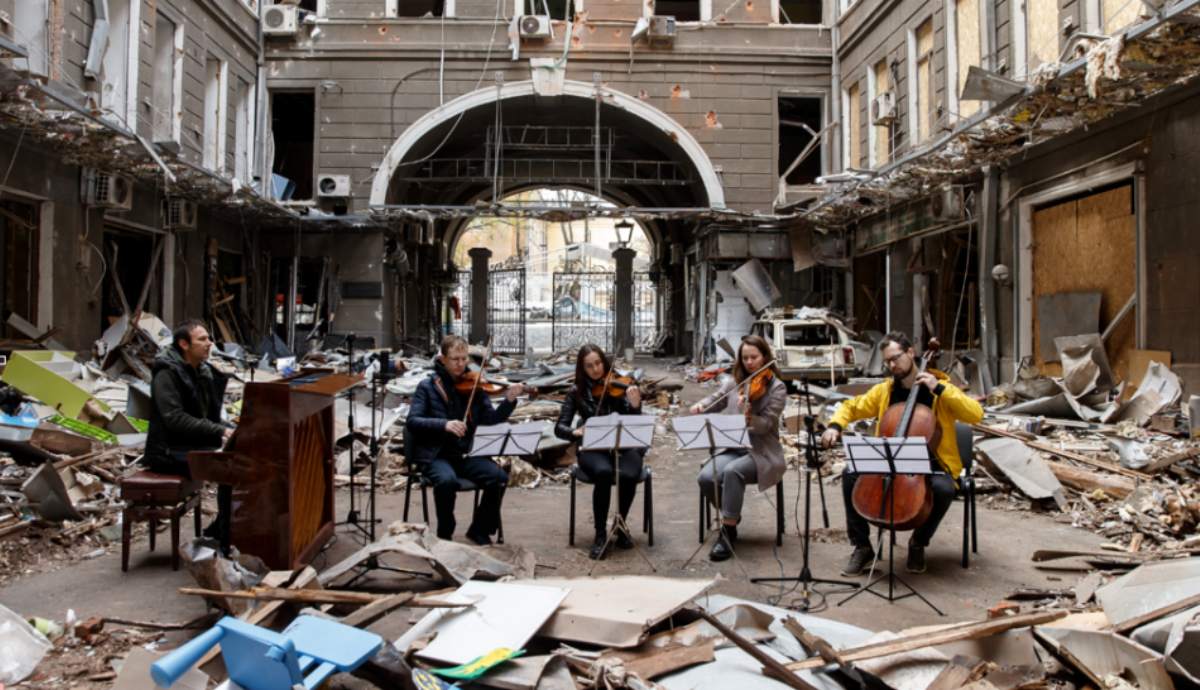
ELIA decided to provide help to Ukrainian art students. In order to do so, the organization launched a new scheme to support Ukrainian art students and universities. The whole event took place at Tate Modern, London. As a result, this kind of aid can help cultural and educational institutions in Ukraine function.
Elia Platform Supports Students and Teachers Who Want to Stay in Ukraine

The UAx Platform connects war-affected students and staff who want to stay in Ukraine with a growing network of mentorship programs. Also, the platform provides them with institutional collaborations with European universities, and a fund for urgent bursaries for students in desperate need.
The platform is a partnership between ELIA and the Abakanowicz Arts and Culture Foundation (AACCF). ELIA is an international network of 280 universities offering higher arts education. On the other hand, AACCF established is the Polish sculptor Magdalena Abakanowicz (1930-2017).

The foundation’s support for UAx is its greatest financial donation to date. The announcement coincided with the premiere of the Tate Modern exhibition Magdalena Abakanowicz: Every Tangle of Thread and Rope. It will last from 17 November 2022, to 21 May 2023.
The foundation is sympathetic to the Ukrainian cause, as a result of Abakanowicz’s experience with the Soviet occupation and the Communist rule in Poland. “Abakanowicz experienced considerable hardship as a student. This includes a period of time sleeping rough”, Mary Jane Jacob, co-artistic director of AACCF and curator of the exhibition, said.
The Importance of Preventing a “Brain Drain”

ELIA executive director Maria Hansen described Abakanowicz as “the fundamental inspiration for UAx”. It has been under development since June of this year. Creating in Conflict depicts the obstacles Ukrainian art students encounter.
Creating in Conflict is a recent promotional short film for the UAx Platform. Students and staff had to seek shelter elsewhere because Kharkiv State Academy of Design and Arts (KSADA) suffered severe damage. The significance of preventing a “brain drain” is well acknowledged.
“The need of the higher arts education sector in Ukraine is clear. They did not need an evacuation. They needed support to keep the institutions alive. Support to allow students to keep studying, and support to help these young artists keep making art”, Hansen also said.

The “Sister School” network of UAx is essential to its assistance program. This includes partnerships between five Ukrainian universities and five institutions in Germany, Estonia, Poland, the Netherlands and the Czech Republic. As a result, 15 Ukrainian institutions will have partnerships by year three.
Members of ELIA are fully funded for three years. They also have access to their networks, materials, programming, and other opportunities. Oleksandr Soboliev, rector of KSADA said the scheme provides “to reboot despite these difficult times. Also, to overcome the psychological and physical consequences that Russian aggression inflicted on Ukrainian students and mentors.”










